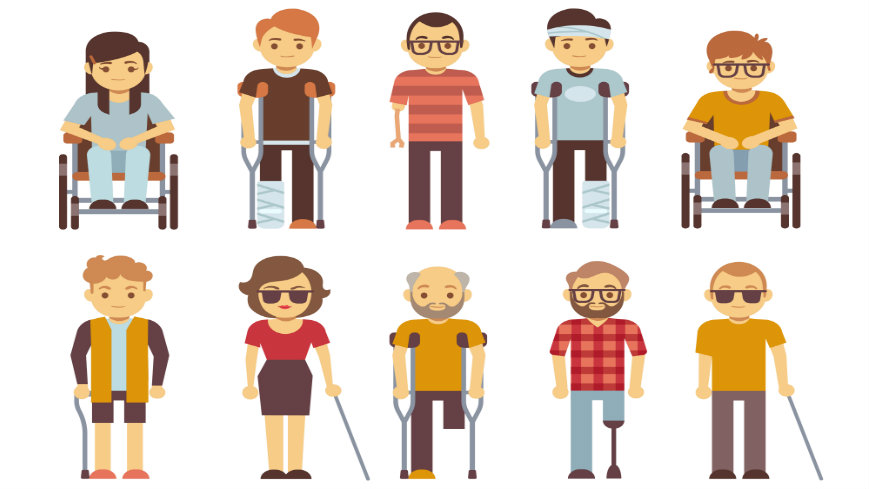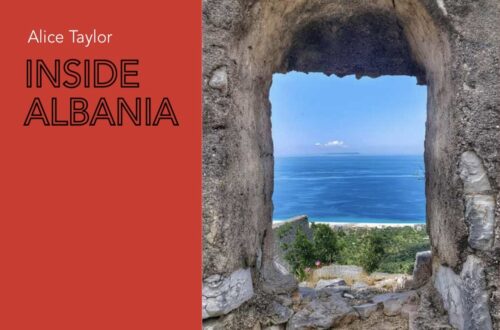Silvana Cara, 32 years old, lives in the city of Kamza, where every day she has to face obstacles on the road and at the doors of institutions and services that she will reach.
Silvana moves with an electric wheelchair, and for this reason, she has gained the freedom to go out alone without a companion, but this freedom is hindered every time she receives a service.
The 32-year-old has not been able to finish her studies and therefore wants to complete an English language course.
“Due to the conditions and the time then, I am originally from Dibra and we moved here to Kamez, I was unable to complete my studies, I stopped school, and I wanted to do an English course,” says Silvana as she shares her story and how she felt discriminated against at the institution’s doors.
Silvana turned to the Regional Directorate of Public Professional Training No. 1 where she was interested in completing the course in English.
“Well, the ramp was a disaster.” “As soon as I got on it, a policeman helped me, but when I went there, I faced discrimination from the employees, who laughed at me, as a joke that I was asking to take a course,” says Silvana.
The room where Silvana would conduct the course was located on the fourth floor and was inaccessible to her, making it impossible for her to do a course.
Inaccessibility to public institutions and daily mobility for people with disabilities continues to be one of the main problems for this category.
This has brought together some activists from various municipalities across the country to denounce cases of discrimination.
Civic initiatives educate young people and institutions
After the discrimination she felt at the doors of the institution, Silvana, together with some other activists in Kamëz and with the help of the “Se Bashku” foundation, sent a complaint to the commissioner’s office.
The Office of the Commissioner for Protection from Discrimination has found “Discrimination against Silvana Cares by the Ministry of Finance and Economy and the National Employment Agency.”
Also, the decision requested that measures be taken by these two institutions so that Silvana has access to complete the course.
“Non-implementation of the decision results in a fine,” the decision states. This is one of the small victories that Kamza’s activist group has won.
Other groups with about 15 activists have also been set up in Vorë and Kavaja, where their goal is to identify problems and denounce them.
Since April 2022, the “Together” Foundation is implementing the “Youth for Inclusion” initiative in the municipalities of Kamëz, Vorë and Kavajë, where young people have undertaken about 40 initiatives to change the problems in their cities.
Activists in Kamez have sent 16 complaints regarding accessibility, including the lack of parking spaces reserved for people with disabilities, sidewalks that have problems, and various public and private buildings such as banks.
Likewise, the activists in Vorë and Kavajë have sent 12 complaints each on these issues.
Suela Lala, head of the “Together” Foundation and activist for persons with disabilities, says that “it is to be appreciated that in a good part of the cases, the institutions against which complaints have been raised have reacted by taking measures to improve accessibility, i.e. without proceeding until the decision is taken or a fine is imposed by the commissioner”.
She brings to attention the case of Kamez Municipality, where there were two institutions with problems at the entrance of the building that were inaccessible for people with disabilities.
“Measures were taken to systematize them and make them accessible, the banks also committed to installing ramps and other elements to make them accessible,” says Lala.
Regarding the annexes that the activists have raised, Lala says that there have been cases when the Commissioner imposed a fine on institutions that did not take measures, a discrimination decision was issued and then measures were taken.
Here she mentions the Albanian post office in Kamëz, which has been fined, and the case of Kavaja, where a fine was imposed on a 9-year-old school.
“There are still others that are under review, but the right has been on our side”, asserts Lala.
The head of the “Se Bashku” Foundation says that the support of institutions for this category is very important because they have a legal obligation that when they offer a service, it must be accessible and usable by everyone without discrimination, including people with disabilities. limited.
It brings to attention the VKM of 2015, according to which public investments cannot be made with public funds in objects that do not have infrastructure that meets all the elements of accessibility.
“So this thing is illegal, but nevertheless we have seen that this thing continues to happen,” says Lala.
Taking into consideration all these problems that exist, the effort of the activists has been to promote local democracy.
“Let us encourage the group of young activists who bring these complaints themselves, that is, the annexes have come from the community from groups of young people with and without disabilities, for the problems they encounter in these municipalities,” Lala concludes.
The need for a structured policy
The Commissioner for Protection from Discrimination (KMD), Robert Gajda, says that the first challenge for persons with disabilities remains the mentality, but adds that in recent years there have been changes in this direction.
“Previously, the limited opportunity was seen as a disability, and seeing disabled people as disabled reduces their many opportunities in life, from employment to being seen as equal among equals,” says Gajda .
The commissioner claims that accessibility in the city remains one of the main problems for people with disabilities. Although there have been changes, he claims that they are small changes and not structured according to a well-thought-out plan.
“There is a lack of a concrete spirit on the part of the Albanian state, a concrete spirit to undertake massive measures to regulate the suitability of various institutions”, says Gajda.
He declares that Albania is not at the right stage in terms of the access given to this category.
“We find that there are many services that are physically inaccessible to people with disabilities, but even then that the services are not adapted to this category”, he declares.
On the importance of civic initiatives, Gajda shows the impact that the latter have had on solving problems and states that the relationship between the KMD and civil society associations and institutions is an extremely important trinomial.
“The most positive thing in recent years, especially in the last year, is that there have been many cases where the subject against whom the complaint was addressed resolved the situation on its own without coming to us with a decision”, he says and adds that the influence in this aspect has there was an increase in awareness on the part of the citizens.
On the relationship of the KMD with the civil society associations, the commissioner states that it is an open and intense relationship, which has had a positive impact on solving cases as well as raising awareness among institutions.
Finally, he has a message for all people who face discrimination, whether physical or not, to report it because that’s the only way they can bring about change.
“It is important that issues are always exposed and the institutional way is one of the best ways to address issues, it has been effective for us, it is very good that they always complain whenever they encounter barriers”, is the closing message of Commissioner Robert Gajda for every person who faces problems of discrimination.
Follow The Balkanista!



